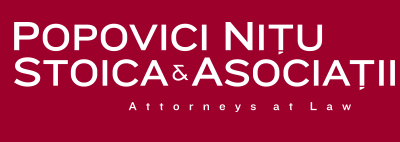- About Us
-
Expertise
- Banking & Finance
- Capital Markets
- Competition & Antitrust
- Corporate & Commercial
- Data Privacy
- Employment & Pensions
- Energy & Natural Resources
- Gambling & Betting
- Healthcare & Pharmaceuticals
- Insurance
- Intellectual Property
- International Arbitration
- Litigation
- Mergers & Acquisitions
- Project Finance/PPP, Concessions & Infrastructure
- Public Procurement
- Real Estate
- Restructuring & Insolvency
- Sports Law
- Tax
- Telecommunications, Media & Technology
- Transports & Logistics
- White Collar Compliance & Defense
- Our team
- Careers
- Publications
- News and Press
- Contact
Articles
NEW FISCAL RULES FOR 2005
From the fiscal perspective, the new year 2005 has commenced under the aegis of amended rules, as a result of the changes brought to the Fiscal Code by the means of the Emergency Government Ordinance no. 138/29 December 2004. Thus, one of the first actions taken by the new Government aimed at significant change of the domestic fiscal regime by implementing the standard flat rate. Amounting to 16%, this sole rate becomes equally applicable to profits gained by commercial companies as well as to population’ revenues, in line with the intentions already announced through the Government Program.
Consequently, the tax on profits obtained by the legal persons shall be substantially decreased starting January 1, 2004 from 25% to 16%.
Conversely, in order to compensate the envisaged cut in budgetary income, the micro-enterprises revenues shall be taxed by a quota augmented from 1,5% to 3%, action which should help the additional gathering in favour of the state budget of approximately 5.400 billion ROL.
For the natural persons, the income tax has been also reconsidered, with the former progressive taxation (based on variable ceilings) being abandoned, as the same standard 16% - rate has been also introduced. The new rate shall apply to the calculation of taxes on revenues originated from salaries, leases, pensions, independent activities (liberal professions, IP rights), agricultural activities, prizes, corresponding to each concrete category of income.
The monthly personal deduction allowed to the taxpayers (natural persons) has been modified and shall be further applied on a differentiated basis, in consideration of a progressive scale of the revenues. Thus, for taxpayers receiving a monthly revenue under 10.000.000 ROL, a personal deduction of 2.500.000 ROL is applicable, which may be additionally increased by 1.000.000 ROL for each person receiving financial support from the taxpayer, up to a maximum limit of 6.500.000 ROL. The personal deduction amount decreases progressively, so that for revenues over 30.000.000 ROL no personal deductions are admitted.
Taxation of revenues obtained from IP rights has been reduced from 15% to 10%, amount which should be withheld by the respective revenue payer. At the same time, the maximum expenditure ceiling applicable to deductions admitted in case of the IP revenues has been restricted from 60% to only 40% of the gross revenue. On the other hand, in case of revenues obtained from monumental art, the maximal threshold applicable to deductions were diminished from 70% to 50% of the gross amounts.
The dividend tax has been doubled from 5% to 10% (action which is deemed to cause supplementary revenues to the state budget amounting to roughly 5.000 billion ROL).
As concerns the tax on revenues gained from gambling activities, this has been maintained to the existing rate of 20%, but the taxable basis has been amended. Thus, the respective tax should be withheld and paid by the revenue payer from the gross amount of the revenue and not from its net value.
However, it should be briefly mentioned here that the introduction of the 16% flat rate has postponed the reduction of other taxes of which current rate is too high, respectively caused the raise of other existing fiscal duties.
Thus, the potential loss of budgetary income which may be determined by the implementation of the flat rate (estimated to 1% of GDP) ruins for the time being any chance of a simultaneous decrease of the social contributions related to labour agreements. A progressive reduction in this respect may be envisaged only starting with 2006, so as to reach a level of 39,5% until 2009.
The tax rate applicable to revenues from leases has been equalized at the general level of the 16% flat rate. Moreover, the taxable basis in case of this type of revenues has been enlarged by the reduction of the deductible expenditures to a single level of 25% (compared to a former level of 50% in case of buildings and 30% for all other cases).
In the same category of effects, we may mention here the increase of tax on revenues obtained from agricultural activities from 15% to the standard 16%-rate.
Revenues collected from prizes shall be taxed only if the amount at stake (the prize obtained either in cash or in kind), is over 8.000.000 ROL for each contest. The taxable rate has been augmented from 10% to the standard 16% rate.
We note in this context that the new enactment eliminates from the category of deductible expenditures allowed so far to the natural persons the expenses incurred by the home refurbishment, aimed at preventing heat losses and improving thermo comfort, as well as insurance premiums for homes locations.










